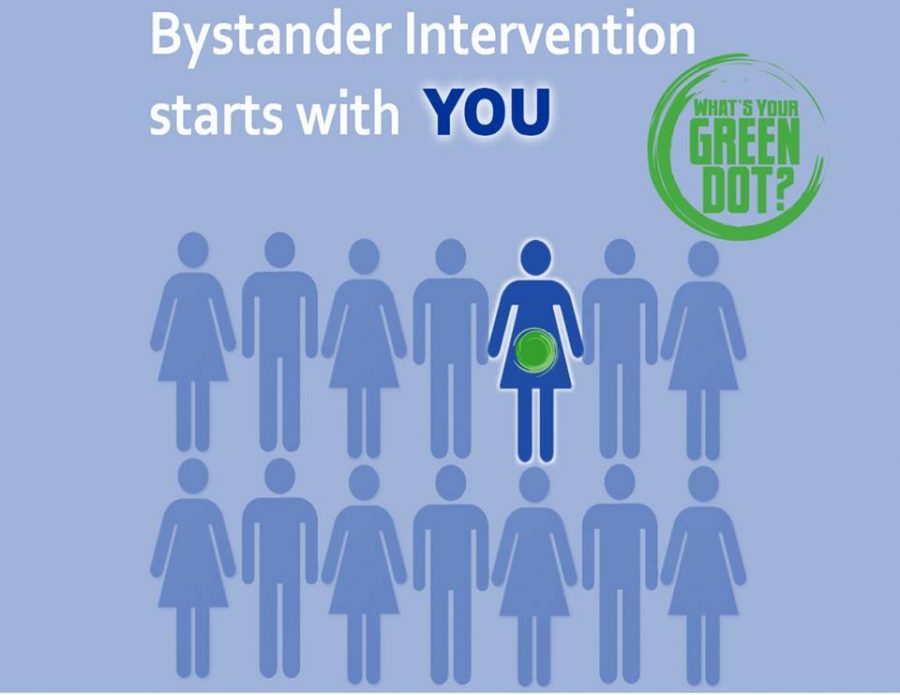With a new semester comes a new program at Loyola: Green Dot training. Over the past few years a team has been working to launch Green Dot at Loyola with the training of student leaders and on-campus professionals and building its social media pages a more concrete marketing plan. Now, the Green Dot team is ready to open up this program to the entire community with the goal to make campus a safer environment.
Green Dot outlines its mission as the following, “in order to measurably reduce power-based personal violence, including sexual violence, partner violence, or stalking, a cultural shift is necessary. In order to create a cultural shift, a critical mass of people will need to engage in a new behavior or set of behaviors that will make violence less sustainable.”
While this is a clear definition of the program, assistant director of student engagement Hope Supernault explained that there is much more to take away from Green Dot.
“To me it’s really about recognizing our role in our community, and being an active bystander and understanding that we can all make a difference if we just say something.”
This program is especially relevant as the rates of power-based personal violence are startling and continue to rise. On college campuses alone it has been found that 1 in 5 women will experience sexual assault, and that in their lifetimes women have a 1 in 3 chance of experiencing interpersonal violence. Of course, violence doesn’t just affect women, as about 10 percent of reported rape victims are men and 1 in 19 men will experience some form of stalking in their lifetime.
Power-based personal violence is defined by three main areas: stalking, partner violence and physical violence. Physical violence can occur within a partner relationship, but often the signs of “red dot” behavior in relationships can be more subtle in the forms of things like excessive jealousy or controlling behavior.
However, it is often hard to gauge how often power-based personal violence occurs since it is often underreported on college campuses. While statistics are based off of estimates from research, Supernault hopes students would take them seriously as Loyola is not immune to incidences of violence. “Of all the things you can take away from Green Dot is to know that it does happen here, and to acknowledge there are active ways to do something about it.”
The Green Dot program is a national initiative that started in Kentucky, and Supernault explained that its proven results pushed Loyola to pursue the initiative, “it is the only program currently out there that has had sustainable change and shown success in research.”
Dr. Ann Coker of the University of Kentucky conducted a five-year study that found that schools that used the program saw a more than 50 percent reduction in self-reported cases of sexual violence, and an overall reduction in violence of about 30 percent.
After three years of training, planning and hard work, the Green Dot program is finally ready to launch on our campus. In the first weeks back to school, the team behind Green Dot looked to raise awareness and interest in the program by covering the campus in green dots, putting up posters and flyers about personal violence and hosting a “Green Out” day on Friday, Jan. 29.
The culminating event to the several weeks of promotion was held at the tailgate for the men’s basketball game Sat., Jan. 30, where students got the chance to learn more about Green Dot and sign up for training. Throughout the month of February, the Green Dot team will be holding four training sessions in hopes to get as many students on board with proactively making more positive changes in the Loyola community.
If you are interested in learning more or participating in the program, you can visit the team’s website www.loyola.edu/greendot and also use the hashtag #GreenDotHounds to promote the program on social media.
Photo courtesy of Loyola Green Dot Facebook
















































































































